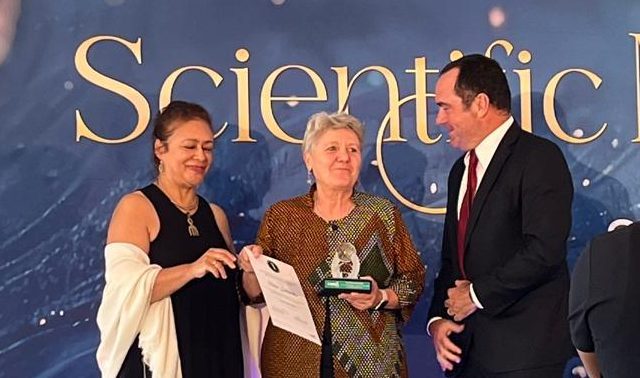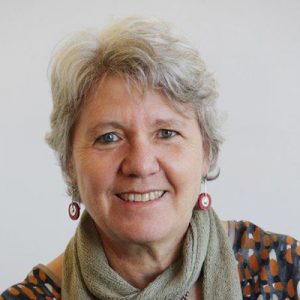
Prof Kalpana Balakrishnan -ASSAf Distinguished Visiting Scholar (DVS) 2024/25
26 February 2025
Pharmaceutical Policy & Management – Online Module 2025
28 February 2025Prof Helen Schneider awarded the Research Capacity Development and Transformation Award
The University of the Western Cape (UWC) Professor Helen Schneider and healthcare legend Florence Nightingale share a profound dedication to transforming healthcare systems and improving public health.
Author: Harriet Box – Institutional Advancement
Much like Nightingale, who revolutionised nursing and hospital sanitation in the 19th century, Prof Schneider tirelessly works to strengthen health systems and ensure equitable access to care in South Africa with her unwavering commitment to communities.
Last week, Prof Schneider’s commitment was acknowledged at the 11th South African Medical Research Council (SAMRC) Scientific Merit Awards when she was honoured as one of UWC’s most prominent and industrious academics in her role as a public health specialist and professor at UWC’s School of Public Health since 2011.
Prof Schneider received the Research Capacity Development and Transformation Award, recognising exceptional achievements and contributions to South African health research.
Her focus on community-based health systems and responsiveness to citizen feedback echoes Nightingale’s emphasis on patient-centred care and the importance of listening to those in need. Their shared vision of a healthier world, driven by compassion and innovation, continues to inspire and shape the future of healthcare.
She holds the South African Research Chair in Health Systems Governance and has directed the SAMRC Health Services to Systems Extramural Research Unit since 2015.
The SAMRC Scientific Merit Awards are prestigious accolades that recognise outstanding health research contributions. These awards honour individuals who have demonstrated exceptional scientific acumen or made innovative strides in addressing public health challenges, potentially influencing policy and enhancing the well-being of the South African population.

Prof Schneider’s work focuses on Health Policy and Systems Research (HPSR), an area critical to strengthening healthcare delivery and governance. Through her leadership and expertise, she has shaped health policy, both nationally and globally, helping to build more effective and equitable health systems.
She said: “I am honoured to have received this award. I am especially delighted to have been one of four inaugural recipients of the newly established Research Capacity Development and Transformation Award. This reflects very much my orientation to scholarship over the last ten years. My achievements would not have been possible without the hugely significant context of the School of Public Health, in the first instance, and UWC more broadly, where the values and practices of transformation and capacity building are deeply embedded in lived institutional realities.”
The seasoned academic holds a Bachelor of Medicine (MBChB), a Master of Medicine (MMed), and a PhD, and is widely recognised in her field and as a contributor to strengthening the South African health system. In 2019, she chaired the Scientific Committee for the SAMRC/NDOH National Universal Health Coverage Dialogue, contributing to key discussions on UHC in South Africa. She has also been Chair of the Scientific and Technical Advisory Committee (STAC) of the World Health Organization’s Alliance for Health Policy and Systems Research since 2023.
Prof Schneider has also played a catalytic role in convening the PhD programme at the UWC School of Public Health, and with a small team completely revised the functioning of this programme over eight years. The programme now enrols more than 50 students a year, and in 2022/3, produced a record number of 18 graduates, largely due to the changes implemented since 2016. She has institutionalised capacity support initiatives such as a PhD induction programme, a supervisors’ forum, and annual writing retreats, all of which have strengthened the scientific rigour of the programme and have been deeply motivating for the students. Her mentorship has also extended to PhD supervisors, supporting and mentoring younger faculty members in their supervision of their own students.

